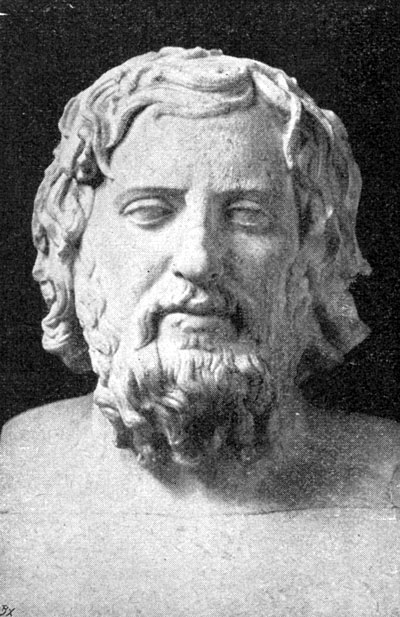|
Melanditae
Melanditae or Melanditai ( gr, Μελανδίται) is the name of a Thracian tribeAnabasis by H. G. Dakyns, 2006, , page 321: "... his sway extended over the Melanditae, the Thynians, and the Tranipsae. Then the affairs of the Odrysians took ..." that were mentioned in Xenophon's Anabasis. References See also *Thracian tribes This is a list of ancient tribes in Thrace and Dacia ( grc, Θρᾴκη, Δακία) including possibly or partly Thracian or Dacian tribes, and non-Thracian or non-Dacian tribes that inhabited the lands known as Thrace and Dacia. A great number o ... Ancient tribes in Thrace Thracian tribes {{Ancient-Thrace-stub ... [...More Info...] [...Related Items...] OR: [Wikipedia] [Google] [Baidu] |
Thracian Tribes
This is a list of ancient tribes in Thrace and Dacia ( grc, Θρᾴκη, Δακία) including possibly or partly Thracian or Dacian tribes, and non-Thracian or non-Dacian tribes that inhabited the lands known as Thrace and Dacia. A great number of Ancient Greek tribes lived in these regions as well, albeit in the Greek colonies. Tribes Thracian Certain tribes and subdivisions of tribes were named differently by ancient writers but modern research points out that these were in fact the same tribe. The name ''Thracians'' itself seems to be a Greek exonym and we have no way of knowing what the Thracians called themselves. Also certain tribes mentioned by Homer are not indeed historical. * Agrianes * Apsynthii * Astae,The Thracians 700 BC-AD 46 (Men-at-Arms) by Christopher Webber and Angus McBride, , 2001, page 11: "After the battle, 10,000 Thracians drawn from the Astii, Caeni, Maduateni and Coreli occupied each side of a narrow forested pass ..." they appear in the 2nd centu ... [...More Info...] [...Related Items...] OR: [Wikipedia] [Google] [Baidu] |
Thracians
The Thracians (; grc, Θρᾷκες ''Thrāikes''; la, Thraci) were an Indo-European speaking people who inhabited large parts of Eastern and Southeastern Europe in ancient history.. "The Thracians were an Indo-European people who occupied the area between northern Greece, southern Russia, and north-western Turkey. They shared the same language and culture... There may have been as many as a million Thracians, diveded among up to 40 tribes." Thracians resided mainly in the Balkans (mostly modern day Bulgaria, Turkey and Greece) but were also located in Anatolia (Asia Minor) and other locations in Eastern Europe. The exact origin of Thracians is unknown, but it is believed that proto-Thracians descended from a purported mixture of Proto-Indo-Europeans and Early European Farmers, arriving from the rest of Asia and Africa through the Asia Minor (Anatolia). The proto-Thracian culture developed into the Dacian, Getae, and several other smaller Thracian cultures. Thracian ... [...More Info...] [...Related Items...] OR: [Wikipedia] [Google] [Baidu] |
Xenophon
Xenophon of Athens (; grc, Ξενοφῶν ; – probably 355 or 354 BC) was a Greek military leader, philosopher, and historian, born in Athens. At the age of 30, Xenophon was elected commander of one of the biggest Greek mercenary armies of the Achaemenid Empire, the Ten Thousand, that marched on and came close to capturing Babylon in 401 BC. As the military historian Theodore Ayrault Dodge wrote, "the centuries since have devised nothing to surpass the genius of this warrior". Xenophon established precedents for many logistical operations, and was among the first to describe strategic flanking maneuvers and feints in combat. Xenophon's '' Anabasis'' recounts his adventures with the Ten Thousand while in the service of Cyrus the Younger, Cyrus's failed campaign to claim the Persian throne from Artaxerxes II of Persia, and the return of Greek mercenaries after Cyrus's death in the Battle of Cunaxa. '' Anabasis'' is a unique first-hand, humble, and self-reflective acco ... [...More Info...] [...Related Items...] OR: [Wikipedia] [Google] [Baidu] |
Anabasis (Xenophon)
''Anabasis'' (; grc-gre, Ἀνάβασις ; an "expedition up from") is the most famous work of the Ancient Greek professional soldier and writer Xenophon. It narrates the expedition of a large army of Greek mercenaries hired by Cyrus the Younger to help him seize the throne of Persia from his brother, Artaxerxes II, in 401 BC. The seven books making up the ''Anabasis'' were composed circa 370 BC. Though as an Ancient Greek vocabulary word, ''ᾰ̓νᾰ́βᾰσῐς'' means "embarkation", "ascent" or "mounting up", the title ''Anabasis'' is rendered in translation as ''The March Up Country'' or as ''The March of the Ten Thousand''. The narration of the army's journey across Asia Minor and Mesopotamia is Xenophon's best known work, and "one of the great adventures in human history". Authorship Xenophon, in his ''Hellenica'', did not cover the retreat of Cyrus but instead referred the reader to the ''Anabasis'' by "Themistogenes of Syracuse"—the tenth-century Suda also des ... [...More Info...] [...Related Items...] OR: [Wikipedia] [Google] [Baidu] |
Ancient Tribes In Thrace
Ancient history is a time period from the beginning of writing and recorded human history to as far as late antiquity. The span of recorded history is roughly 5,000 years, beginning with the Sumerian cuneiform script. Ancient history covers all continents inhabited by humans in the period 3000 BCAD 500. The three-age system periodizes ancient history into the Stone Age, the Bronze Age, and the Iron Age, with recorded history generally considered to begin with the Bronze Age. The start and end of the three ages varies between world regions. In many regions the Bronze Age is generally considered to begin a few centuries prior to 3000 BC, while the end of the Iron Age varies from the early first millennium BC in some regions to the late first millennium AD in others. During the time period of ancient history, the world population was already exponentially increasing due to the Neolithic Revolution, which was in full progress. While in 10,000 BC, the world population ... [...More Info...] [...Related Items...] OR: [Wikipedia] [Google] [Baidu] |





